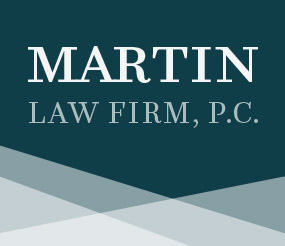A Pennsylvania debt collection lawyer has a much greater ability to collect a debt on behalf of a client as compared to a collection agency. Collection agencies are fundamentally impaired by their inability to proceed with legal remedies, and they typically fail to employ certain legal techniques that help protect the creditor. An experienced debt collections lawyer, however, can skillfully utilize Pennsylvania law to effectively recover debts owed to clients while ensuring the full protection of the creditors’ rights.
This is part one of a two-part blog post discussing the advantages of utilizing a PA collections lawyer. This post will discuss the debt collection legal process in Pennsylvania, filing a lawsuit, settlement and obtaining a judgment. Part two will discuss the legal remedies and tools available to a PA collections lawyer once a judgment has been obtained against a debtor.
Statistics show that if you haven’t received payment on a debt after 90 days, the debtor is not likely to pay you willingly. Even the most experienced business owners encounter this problem. The sooner you contact a PA collections lawyer, the more likely you are to successfully recover the money owed to you.
PA Debt Collection Legal Process
A Pennsylvania collections lawyer can file a lawsuit against the debtor to commence the legal action. Filing a lawsuit against a PA debtor is often the most effective route to debt collection. The goal of most debt collection lawsuits in PA is to compel the debtor to settle the matter or to obtain a judgment against the debtor, which can then be executed upon.
A lawsuit begins with the filing of a Complaint in the appropriate Pennsylvania court. If the debt is $12,000.00 or less, the Complaint must be filed in District Court. If the debt is greater than $12,000.00, the Complaint must be filed with the proper PA county Court of Common Pleas.
Settlement of a PA Debt Collection Matter
Settlement is an agreement reached between a creditor and a debtor whereby the debtor agrees to pay some or all of the debt to the creditor. A payment plan is often incorporated into the settlement. A settlement agreement for debt collection should always be in writing, prepared by a lawyer and signed by both parties.
Your debt collections lawyer should negotiate a remedy in the settlement agreement in case the debtor later decides not to honor the settlement agreement. For example, a Pennsylvania debt collections lawyer can prepare a Stipulation of Judgment or a Confession of Judgment for the debtor to sign. These approaches help to protect the creditor’s rights by allowing the creditor to obtain a quick judgment against the debtor in case of default so that a debt collection lawyer can proceed with PA enforcement remedies. Learn more about PA debt collection settlement agreements.
If a settlement cannot be reached, then the creditor may have to proceed to trial in a Pennsylvania court of law to obtain a judgment by verdict. If the debtor fails to respond to the Complaint entirely, a PA debt collections lawyer can obtain a judgment by default. The majority of PA debt collection cases settle before trial.
If a creditor is able to obtain a judgment against a debtor, an experienced PA collections lawyer will have a tremendous amount of legal tools available for the enforcement of the judgment. Part two of this blog post will discuss enforcement of judgments, including locating a debtor’s assets, levy of personal property and attachment of bank accounts. Follow us on Facebook or subscribe to our blog by email to ensure you don’t miss the conclusion of this post.
Contact a PA Debt Collection Lawyer
The Martin Law Firm, located in Blue Bell, Montgomery County, PA, has over 10 years of experience representing businesses and individuals against business debtors for commercial debt collection matters. Our skilled PA debt collection lawyer has helped collect hundreds of thousands of dollars on behalf of our clients. Contact The Martin Law Firm today at 215-646-3980 for a free consultation.
